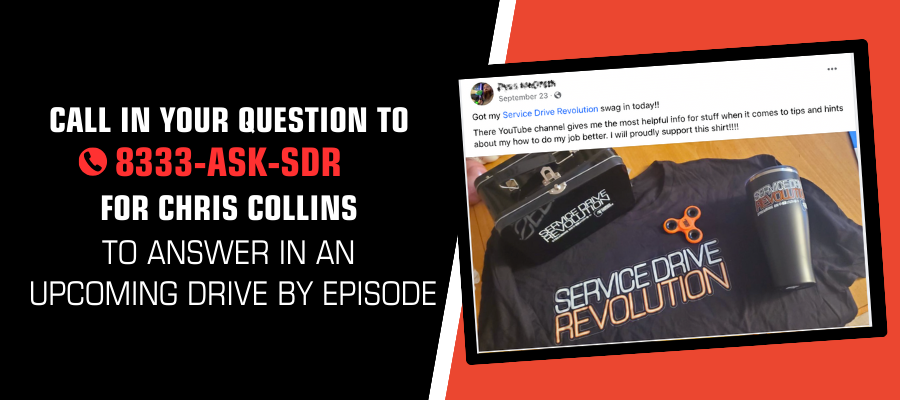
HERE’S WHAT YOU NEED TO KNOW ABOUT FIXED OPS CONSULTANTS
Operating your business for more than ten years will definitely require Fixed Operations Consultant (also Fixed Ops Consultant), who will help improve the process and
Technology has become an integral part of our daily lives in today’s fast-paced world, and the automotive industry is no exception. Service Departments across the country have eagerly embraced various technologies to streamline processes, increase efficiency, and improve the overall customer experience. However, as someone who’s been in the automotive industry for over 25 years, I wonder: is this heavy reliance on technology hurting our ability to communicate effectively with our customers?
When I first started as a Service Advisor, things were much simpler. We relied on phone calls, in-person interactions, and the occasional night drop to communicate with our customers. While it may seem old-fashioned by today’s standards, it worked because we focused on building genuine relationships and establishing trust. We didn’t have fancy gadgets or automated messages to hide behind; instead, we had to hone our interpersonal skills and learn how to connect with people on a human level.

Fast-forward to today, and the landscape has changed dramatically. We now have a ton of different communication channels at our disposal: email, text messages, video walkarounds, CRMs, and even cars that can communicate directly with the dealership. On paper, these tools sound like a Service Advisor’s dream come true. They promise to make our lives easier, keep customers informed, and ultimately boost our bottom line. But are they really delivering on those promises?
In my experience, the answer is not always a resounding yes. One of the biggest issues I see is that Service Advisors are overwhelmed trying to keep up with multiple communication channels. They’re so busy managing emails, responding to texts, and setting up automated messages that they don’t have time to pick up the phone and have a genuine conversation with a customer. As a result, the personal touch that builds trust and loyalty is getting lost in the shuffle.
It’s not just about the time factor, either. Another problem with relying too heavily on technology is that it can lead to miscommunication and misunderstandings. When you’re communicating through a screen, it’s easy for tone and intent to get lost in translation. A customer might misinterpret an automated message or a hastily written text, leading to frustration and a breakdown in trust. And once that trust is broken, it can be tough to repair.
Now, don’t get me wrong. I’m not suggesting we abandon technology altogether and go back to the Stone Age. I understand that in today’s competitive market, we need to leverage every tool to stay ahead of the curve. However, we need to be more mindful of how we use technology to ensure that it improves the customer experience, not just adds complexity.
So, what’s the solution? The key is to find a balance between leveraging technology and maintaining a human touch. Yes, automated messages and digital inspections can be useful tools, but they should never replace the value of a personal conversation. As Service Advisors, we need to be proactive in our communication and use technology to support our efforts, not replace them entirely.
Another important aspect of balancing technology and personal communication is knowing when to use each tool. For example, an automated text message might be OK for confirming an appointment or sending a quick update, but it’s not the best choice for discussing a complex repair or addressing a customer’s concerns. In those situations, a phone call or face-to-face conversation is usually the way to go.
Of course, implementing these changes can be challenging, especially if your service department has become heavily reliant on technology. It may require a shift in mindset and a willingness to step outside your comfort zone. But I firmly believe that the payoff is worth it. When you prioritize personal communication and use technology as a supportive tool rather than a crutch, you’ll see a noticeable improvement in customer satisfaction and loyalty.
While technology has undoubtedly changed the game in the automotive industry, it’s important to remember that it’s not a magic bullet. At the end of the day, our job as service advisors is to build relationships and earn our customers’ trust. By balancing leveraging technology and maintaining a personal touch, we can create a service department that genuinely stands out from the competition and delivers an exceptional customer experience every time.
If you’re struggling to balance technology and personal communication, book a free 15-minute strategy session with me. My team and I can identify opportunities to optimize your Service Department communication, create a better customer experience, and ultimately boost your bottom line.


Operating your business for more than ten years will definitely require Fixed Operations Consultant (also Fixed Ops Consultant), who will help improve the process and

Automotive consultants are employed by dealerships and other car companies to help in developing their businesses and, in turn, increase profits. They also might work

“I FIND TELEVISION TO BE VERY EDUCATING. EVERY TIME SOMEBODY TURNS ON THE SET, I GO IN THE OTHER ROOM AND READ A BOOK.” -GROUCHO MARX

Service Managers Twenty (20) Group is a regular mastermind meeting held every other month intended for Auto Dealership Service Managers where experiences in different automotive

Operating your business for more than ten years will definitely require Fixed Operations Consultant (also Fixed Ops Consultant), who will help improve the process and

Automotive consultants are employed by dealerships and other car companies to help in developing their businesses and, in turn, increase profits. They also might work

“I FIND TELEVISION TO BE VERY EDUCATING. EVERY TIME SOMEBODY TURNS ON THE SET, I GO IN THE OTHER ROOM AND READ A BOOK.” -GROUCHO MARX
LINKS

This Step By Step Guide Will Teach You How To…

